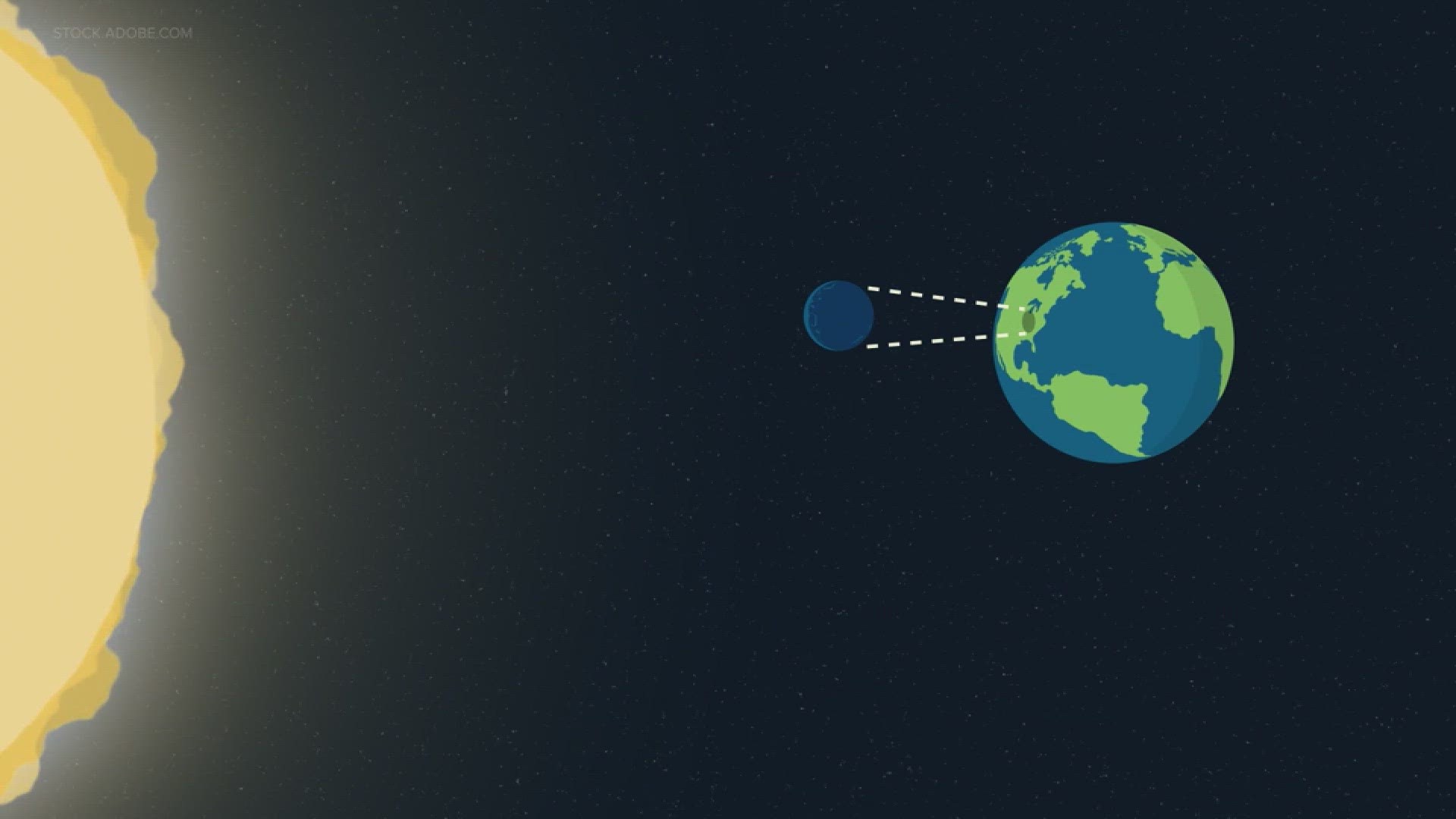AROOSTOOK COUNTY, Maine — A total solar eclipse happens when the moon passes between the sun and Earth, completely blocking the face of the sun, according to NASA. It's an experience that happens very rarely and even more rare for it to come to the state you live.
This year, Mainers are very lucky that the path of totality includes a good portion of central and northern Maine, from Somerset to Penobscot to Aroostook County. The path of totality will enter Maine around Jackman, will cross over Baxter State Park, and will exit the U.S. in the town of Houlton.
The big event is happening during the afternoon of Monday, April 8. If you want to be part of this 3.5-minute experience, it's important you plan ahead.
- Find a place to stay. If you don't live in northern Maine, you'll need to get to a community that's in the path of totality. Hotel availability in the area of that path will already be a challenge; most are already booked. Instead, try to see if you have a friend or family member to stay with. The path will be visible in the following communities: Littleton, Houlton, Jackman, Patten, Rockwood, Mount Katahdin, Baxter State Park, Rangeley, West Forks, Carrabassett Valley, The Forks, Mount Chase, Millinocket, Dover-Foxcroft, Island Falls, Medway, Linneus, Portage Lake, Presque Isle, Fort Fairfield, Lincoln, Caribou, Danforth, and Lee.
- Leave early, and plan for traffic delays. If you want to drive back and forth on the same day, plan to leave extra early because of traffic, and prepare yourself for delays when leaving the region.
- Protect your eyes. You also need a pair of special eclipse glasses. Beware of fake protective eyewear, too. Looking directly at the sun, even in the brief moments before and after totality, can cause severe and permanent damage to your eyes.
There is, however, only one time when you can take off your eclipse glasses. David Baron, a total eclipse chaser, explained.
"The moon will very slowly move across the phase of the sun. Looking through eclipse glasses, the sun will look sort of like a crescent moon, and it will get thinner and thinner and thinner and thinner, and just before it totals, you'll see a very thin bit of sun left through your eclipse glasses. And when that last bit is gone and suddenly it goes dark, at that moment and only that moment you take the eclipse glasses off," Baron said. "What you will see is the most marvelous thing you will see: You'll see the sun's outer atmosphere."
During the eclipse Baron recommends not wasting time using your phone to take pictures. Instead spend those three minutes enjoying nature's show. He also said something you could instead do is set up your phone on a tripod or lean it against something sturdy, then hit record 10 minutes ahead of the total eclipse. That way, you can have a memory of how you and your family and friends reacted to watching the eclipse, he said.
Baron, who wrote "American Eclipse," said the upcoming eclipse is an opportunity for you to see with your naked eye what the solar system looks like when the sun is covered by the moon.
He said total eclipses are very rare and something you might not ever witness again, so he encourages everyone to take the day off from work; and if you have kids, let them miss school that historic day.
"It connects people. It connects you with your loved ones and friends, and it connects us through time," he said. "One of the great joys I had in researching my book was learning what people in 1878 had to say about the same spectacle that I witnessed and to see that these people who lived in another time and didn't have the technology we had and wore funny clothes had the same reaction for a total eclipse like we do today. For them, like us now, it's really a marvel that reminds you of the miracle of being alive on this planet in this solar system. Everyone owes it to themselves to make it a priority."
A partial eclipse will be visible for most of Maine, but Baron said there's nothing like being in the path of totality, which will hit parts of Somerset, Penobscot, and Aroostook counties starting around 3:28 p.m. April 8.
Click here to learn more about this year's total solar eclipse and if you'd like to buy a copy of David Baron's book "American Eclipse."

